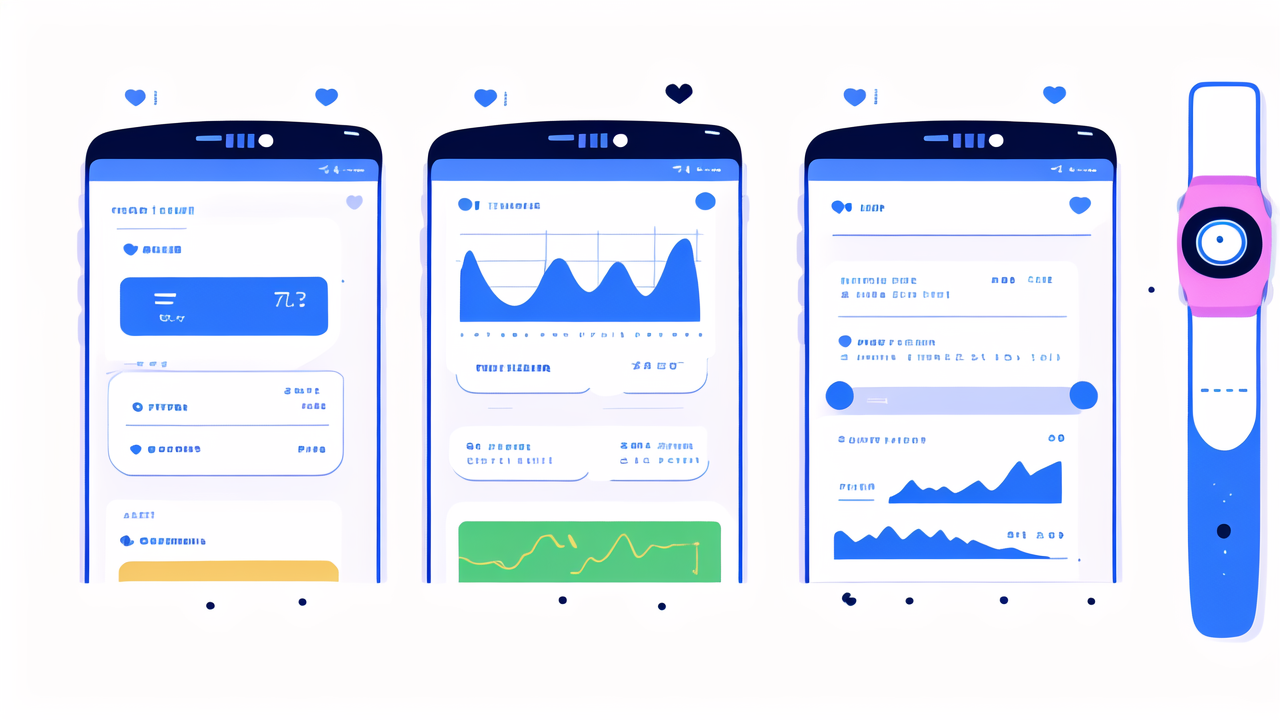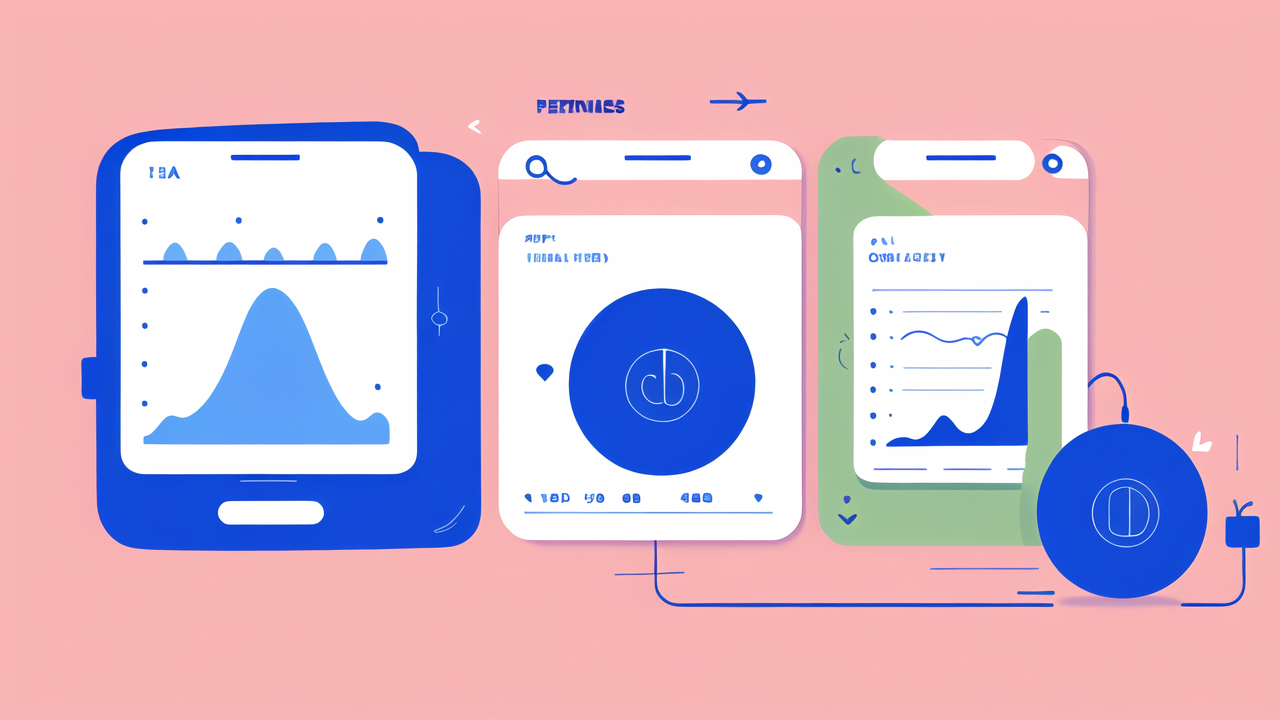The Evolution of Fitness Tracking: From Pedometer to Smart Band
A Brief History of Fitness Technology
Fitness tech has come a long way. It all started with simple pedometers. These basic devices counted steps. They were the first step towards tracking our daily activity.

As tech advanced, so did fitness trackers. Heart rate monitors came next. They gave athletes more data about their workouts. This was a game-changer for many.
Then came the smartphone era. Apps could track runs and bike rides using GPS. This opened up new ways to monitor fitness. It also made sharing and competing with friends easy.
The real breakthrough was the smart fitness band. These devices combined all previous tech into one wearable. They could track steps, heart rate, sleep, and more. All in a compact, stylish package.
How Fila Watches Became Smart Devices
Fila, known for sports apparel, saw an opportunity. They decided to enter the smart fitness band market. It was a natural fit for their brand.
Fila started by partnering with tech companies. This allowed them to create high-quality smart devices. They focused on combining style with function.
Their first smart watch was a hit. It offered basic fitness tracking in a sleek design. Fila quickly improved on this. They added more features with each new model.
Today, Fila watches are full-fledged smart devices. They offer advanced fitness tracking and smartwatch features. All while maintaining Fila's signature style.
Analyzing the Features of Fila's Smart Fitness Bands
Cutting-Edge Health and Wellness Metrics
Fila's smart fitness bands are packed with features. They go beyond basic step counting. These devices offer a wide range of health metrics.

Heart rate monitoring is a key feature. It's not just for workouts. The bands track heart rate 24/7. This gives users a complete picture of their cardiovascular health.
Sleep tracking is another important feature. The bands monitor sleep patterns and quality. This helps users improve their rest and recovery.
Stress levels are also tracked. The bands use heart rate variability to measure stress. This helps users manage their mental health.
Blood oxygen levels can be measured. This is useful for athletes training at high altitudes. It's also helpful for those with respiratory issues.
Some models even offer ECG readings. This can detect irregular heart rhythms. It's a powerful tool for early detection of heart issues.
Style Meets Performance: Design and Durability
Fila knows that looks matter. Their smart bands are designed to be stylish and functional. They come in various colors and styles to suit different tastes.
The bands are made from durable materials. They can withstand intense workouts and daily wear. Many models are water-resistant or waterproof. This makes them suitable for swimming and other water sports.
The screens are designed for visibility. They're easy to read, even in bright sunlight. Many models offer customizable watch faces. This lets users personalize their device.
Comfort is a key factor in design. The bands are lightweight and ergonomic. They're meant to be worn all day and night without discomfort.
Battery life is also impressive. Many models can last a week or more on a single charge. This means less time charging and more time tracking.
The Integration of AI and Fila Watches
Artificial Intelligence (AI) is changing the game for smart fitness bands. Fila is at the forefront of this trend. They're using AI to make their devices smarter and more helpful.
AI helps personalize the user experience. It learns from the user's habits and patterns. This allows it to offer tailored advice and insights.
Workout recommendations are one example. The AI can suggest exercises based on the user's goals and fitness level. It can also adjust these recommendations as the user progresses.
Sleep insights are another area where AI shines. It can analyze sleep patterns and suggest ways to improve sleep quality. This goes beyond just tracking hours slept.
AI also helps with stress management. It can detect patterns in stress levels and activities. This allows it to suggest stress-reduction techniques at the right times.
The AI can even predict potential health issues. By analyzing trends in vital signs, it can alert users to potential problems. This can be a lifesaver in some cases.
The Impact of Fila Watches in the Fitness Industry
Changing the Game for Professional Athletes
Fila watches have made a big impact on professional sports. They offer athletes a new level of insight into their performance. This has changed how many train and compete.

Data is now a crucial part of training. Athletes can track every aspect of their workouts. This includes heart rate, speed, distance, and more. Coaches use this data to fine-tune training plans.
Recovery is another area where these devices shine. They track sleep quality and recovery time. This helps prevent overtraining and reduces injury risk.
During competitions, the watches provide real-time data. Athletes can monitor their pace and effort levels. This helps them perform at their best without burning out too soon.
Many sports teams now use Fila watches for all their athletes. This gives coaches a comprehensive view of team performance. It allows for more informed decisions about training and tactics.
The Role of Smart Fitness Bands in Consumer Fitness Trends
Smart fitness bands have changed how everyday people approach fitness. Fila's devices have been at the forefront of this trend. They've made fitness tracking accessible and fun.
These devices have gamified fitness. Users can set goals and earn rewards. This makes staying active more engaging and motivating.
Social features have also boosted engagement. Users can compete with friends or join challenges. This adds a social aspect to personal fitness.
The devices have made people more aware of their health. Many users report being more active since getting a smart band. They're more conscious of their daily step count and activity levels.
Smart bands have also popularized new fitness trends. High-Intensity Interval Training (HIIT) has grown in popularity. These devices are perfect for timing intervals and tracking intensity.
The Future of Fitness Tracking Technology in the United States
The future of fitness tracking looks bright, especially in the US. Fila is well-positioned to lead this growth. Several trends are shaping the industry's future.
Integration with other devices is increasing. Smart bands will sync with smart home devices. This could allow for more comprehensive health monitoring.
AI will become more advanced. It will offer more personalized and accurate health insights. This could turn fitness trackers into personal health assistants.
Mental health tracking will likely improve. Devices may be able to detect mood changes and stress levels. This could help users manage their mental wellbeing better.
Wearable tech may become more discreet. We might see smart jewelry or clothing. This would make fitness tracking even more seamless.
Health insurance companies are starting to use fitness data. They may offer incentives for active lifestyles. This could drive further adoption of smart fitness bands.
As tech advances, so will the capabilities of these devices. Fila is sure to be at the forefront, continuing to blend style and functionality for athletes of all levels.




Leave a comment
This site is protected by hCaptcha and the hCaptcha Privacy Policy and Terms of Service apply.